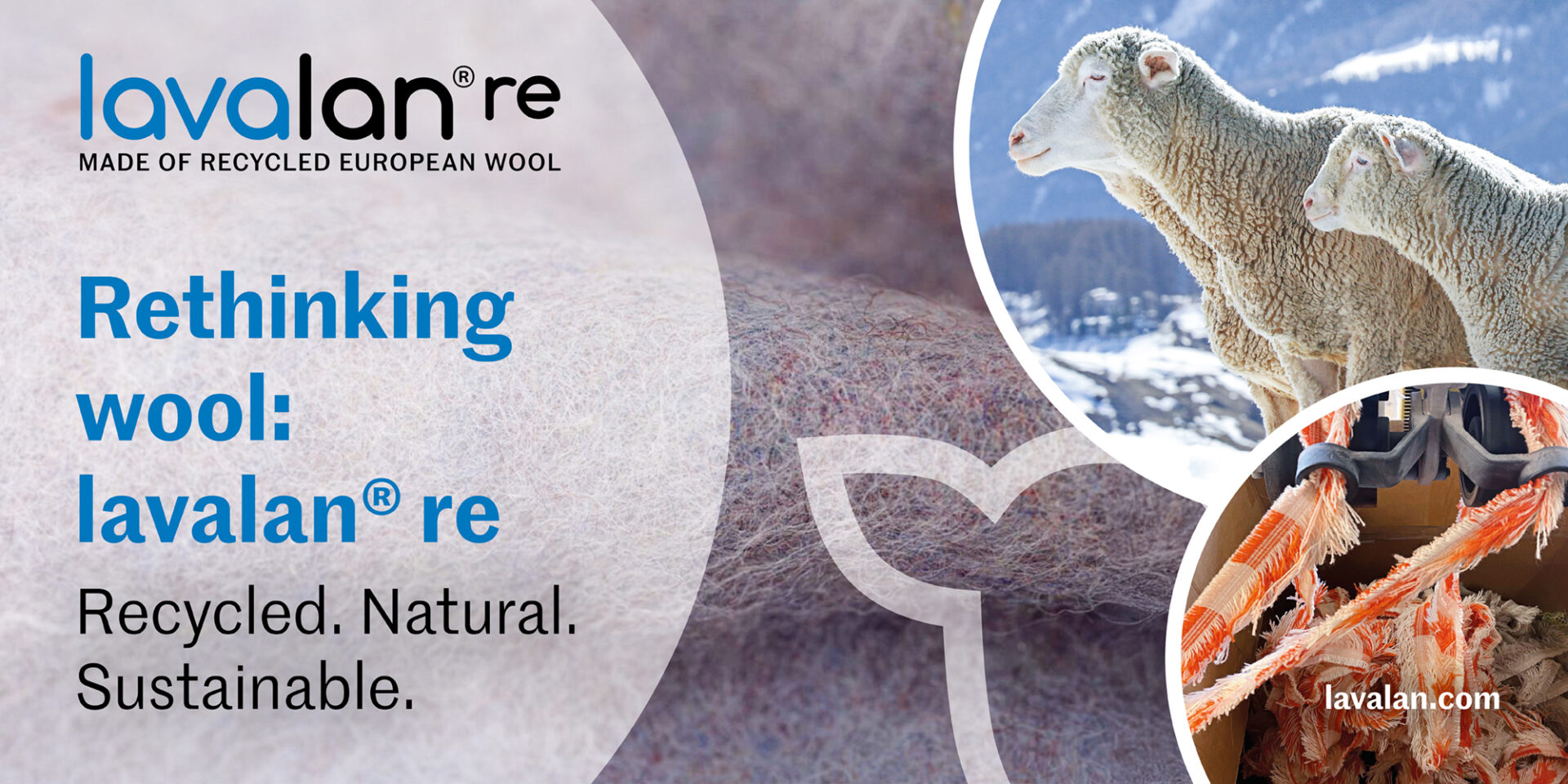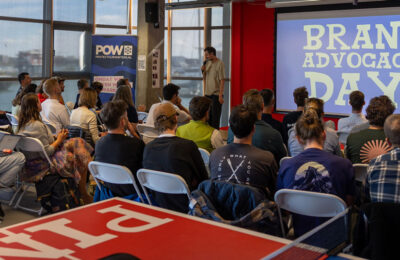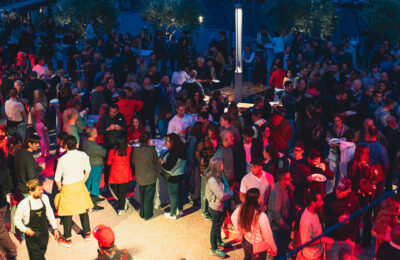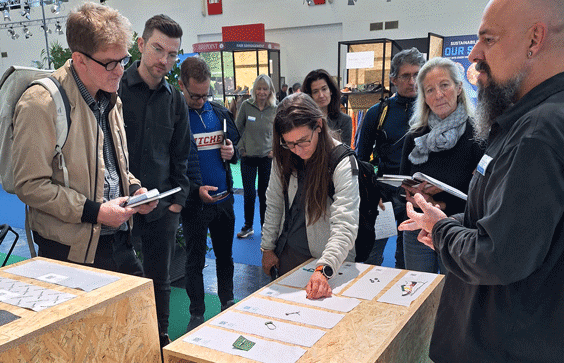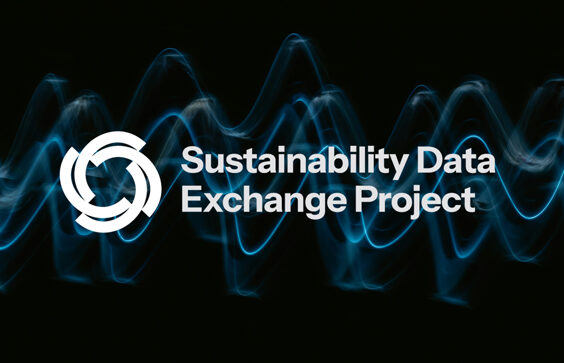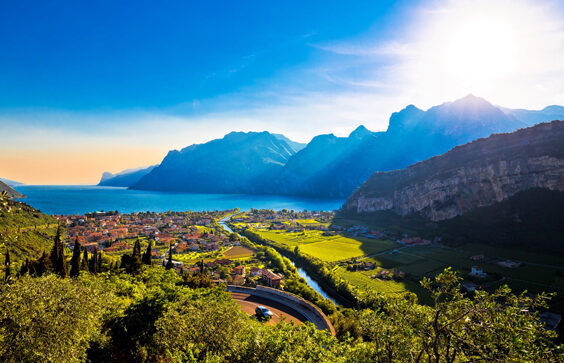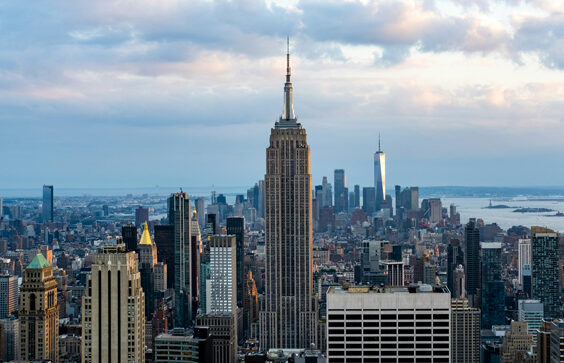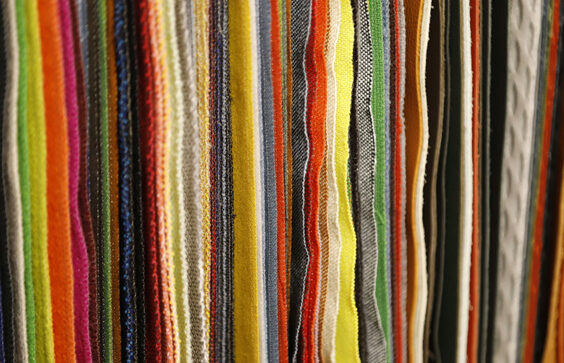
October 21, 2025 German outdoor retailer pushes frontiers of reuse concept in new store
Globetrotter’s new Ulm store showcases how reuse concepts in retail can cut CO2 emissions, conserve resources, and create a unique shopping experience.
In recent years, Globetrotter has been rethinking how its outdoor stores take shape. Anyone who enters Globetrotter’s newly opened Ulm store, just minutes from the cathedral, immediately sense that this place is different: creative, colorful, and unmistakably unique. Small yellow Post-it notes give attentive visitors their first clues: “Ideas instead of waste,” “Re:used,” or “Curtains up for sustainability” is what they say. Reclaimed elements are woven throughout the design, creating a unique atmosphere while offering a glimpse into retail’s circular future.
From teardown to transformation
“Tearing everything out and replacing it is no longer a contemporary approach for us. That’s why we prioritize reusing existing furniture and sourcing second-hand parts when designing our stores,” explains Fabian Nendza, Sustainability Manager at Globetrotter.
Translated into practice, this meant that Konrad Knoblauch GmbH, which implemented the project as the general contractor, first had to get an overview of the available resources and materials.
“Among other things, we had furniture from the old Ulm store from the 1990s, from a former shop area of the Düsseldorf branch, and some second-hand furniture at our disposal,” recalls project manager Antje Übele.
All-around circular concept
“First of all, I had to create a coherent concept and see which pieces of furniture were still missing and where I could get them from. This research in particular was a major challenge.”
Unique pieces such as a discarded workshop counter from a Hamburg café were rescued from bulky waste. In total, significant CO2e emissions were avoided and resources conserved, according to scientific monitoring by cradle-to-cradle experts at EPEA.
With around 790 m² of retail space on two floors, the new Globetrotter store in Ulm not only offers a better shopping experience than the previous store, but also an all-around circular concept: in addition to a “club hut,” which offers a meeting place for the Ulm outdoor scene with numerous workshops and lectures, there is also a large second-hand area and a workshop.
The Bonn Re:Think store sets the precedent
The model for the new store was the first Globetrotter Re:Think Store, which opened in Bonn in spring 2023.
“In retail, it usually works like this: before a new store opens, the premises are completely redesigned. Materials such as wall panels and flooring, as well as furniture such as shelves, clothes racks, and counters, often end up in the trash – even though they could still be used. This wastes valuable resources, and we wanted to change that,” reports Fabian Nendza.
Rather than starting from scratch, Globetrotter kept most of the furnishings from the previous tenant of the location in Bonn, Conrad Electronic – creatively repurposing them. For example, old vacuum cleaner holders became backpack strap fixtures. The interior was complemented with other used materials and furniture, some of which came from the Globetrotter main warehouse and other stores.
Scientific insight into store emissions
The Re:Think concept was rounded off by offerings such as an in-house repair workshop and the largest second-hand sales area in a Globetrotter store to date.
“The entire project surrounding the Re:Think Store in Bonn showed us that it was possible to design a store using almost exclusively used materials,” says Fabian Nendza.
“What we didn’t know, however, was how sustainable the whole thing was. We wanted to find out exactly that, so we brought in the experts from EPEA to provide scientific support for the project.”
The idea of developing a “Circularity Passport Interiors,” or CPI for short, was born in collaboration with EPEA. The aim of this passport is to transparently show which products and materials were used in the interior design and how large their ecological footprint is. This will make it possible to compare and optimize different design approaches in terms of their ecological footprint in the future.
From Bonn to Ulm: applying the learnings
In Bonn, around 97 percent CO2e was saved compared to a comparable store construction project.
“The fact that we were able to take over the entire furnishings from the previous tenant was a real stroke of luck for us, which cannot be repeated in every project,” explains Fabian Nendza.
“However, the good results have encouraged us to apply what we’ve learned to new projects, such as the workshop in the Cologne experience store – and now also in Ulm.”
A “Circularity Passport Interiors” was also created for the Ulm branch. All materials used were recorded with specifications, weight, and other data, then evaluated by experts at EPEA.
“The evaluations and data from our different Re:Think projects are very important. This way, we build competence and know-how that we can use when another store is renovated or opened,” says the Globetrotter CSR Manager.
“This kind of reuse concept is still very unusual in the industry, and we are still in the very early stages. But we believe that these concepts will offer a unique experience for our customers and, hopefully, inspire them to rethink interior design in general,” Antje Übele adds.
Results at a glance
“I would love to plan only these kinds of projects,” explains Antje Übele.
“I enjoyed it immensely. I believe it is extremely important to rethink retail in new and different ways. Planning with what you have at hand and developing a concept from this is exciting and challenging.”
- EPEA estimated the carbon footprint of completely new shop fittings for a comparable project at 14.02 tons of CO2e.
- The reuse concept enabled 4.99 tons of CO2e to be avoided.
- The CO2 emissions of 9.03 tons of CO2e were mainly due to the newly laid PVC flooring.
- The reuse concept reduced emissions by about 36%.
- Around 73% of the materials used in the store are reused.
- 99% of materials can be reused again in the future.
About Globetrotter
Globetrotter is a leading German outdoor retailer known for its experiential stores, gear services, and commitment to forward-thinking design strategies. With the Re:Think concept, Globetrotter is exploring how material reuse and design transparency can help shape the future of the retail industry.
Photos: Jonas Skorpil


